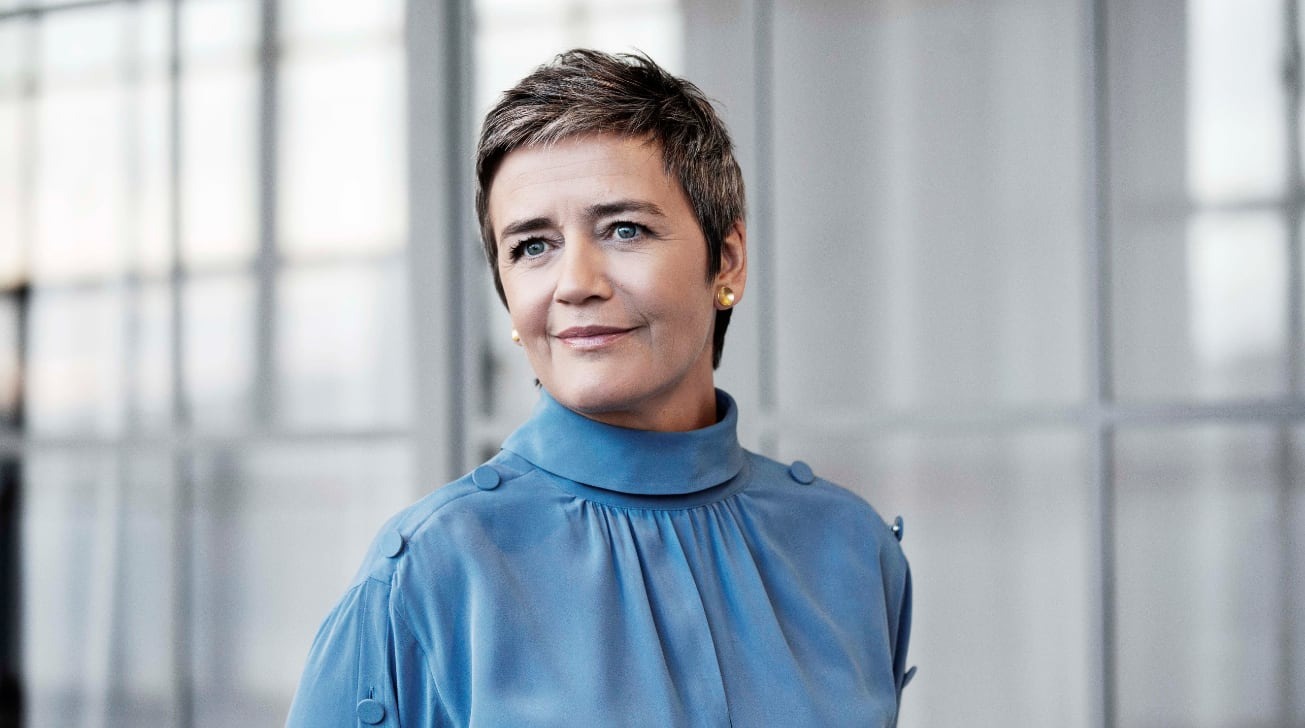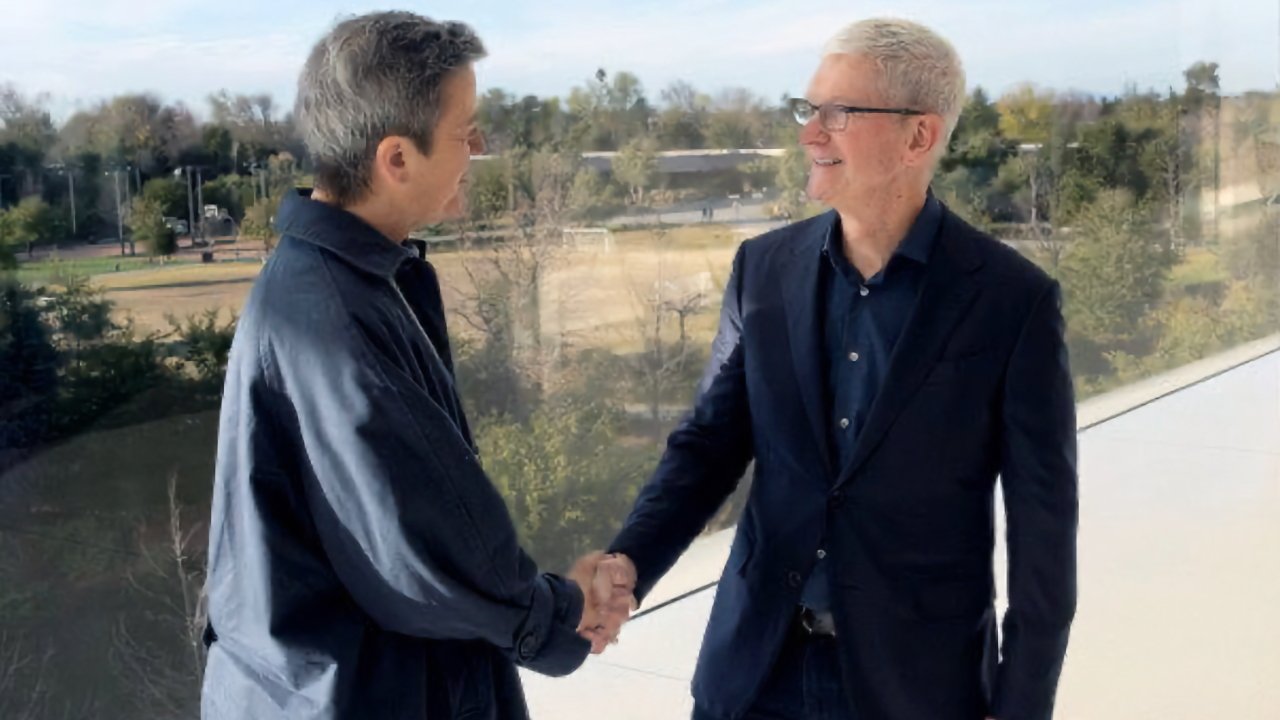Margrethe Vestager has spent a decade leading the European Union’s attempts to control Big Tech, including actions Tim Cook described as “total political crap.” She won’t be doing it any longer.
The role of European Commissioner for Competition is a mandate that sees its holder having to be reappointed every five years. Vestager has served two terms, starting in 2014, and over her decade in the role has been a principle figure in the EU’s many and varied disputes with Apple.
According to the Financial Times, Vestager will not be nominated for a third term. It’s said that this is due to Vestager’s Social Liberal party faring poorly in Denmark’s 2022 elections.
Speaking in June 2024, though, Vestager said that it was probable that her tumultuous decade in the role would be ending.
“Well, I may sleep for a month or so because this has been 10 years hypercharged,” she told CNBC, ” but other than that the chances of a new mandate is they’re very very very slim so I’m kind of looking forward to a new chapter.”
Fittingly, the main point of that CNBC interview concerned Apple, of whom Vestager said she had serious concerns. That might be the last time she would get to say that, but it was far from the first.
Vestager’s anti-Apple stance
Margrethe Vestager was the central figure behind the EU’s legal case against both Apple and Ireland. In 2016, the European Commission handed down its biggest penalty to that date, ordering Apple to pay $14.5 billion in what it said were back taxes.
This is the ruling that Apple CEO Tim Cook took the unusual step of publicly criticising. He didn’t mess around, either, directly calling it “total political crap,” and saying it was an anti-US measure.
It’s certainly true that Apple benefits financially from the agreement it has with Ireland’s government. And it’s also true that the company’s headquarters in Cork, Ireland, oversee the finances of Apple worldwide.
However, the key word there was “agreement.” Apple often says that it pays the full tax it is required to in every country where it operates, but it doesn’t tend to mention how much that is, or what good a deal it gets from countries like Ireland.
According to the European Commission, Apple paid 1% in tax in 2003, and 0.005% in 2014. The EU declared this illegal, and while investigations had begun before Vestager’s term began, it was she who got to announce the findings.
“Ireland granted illegal tax benefits to Apple,” she said in 2016, “which enabled it to pay substantially less tax than other businesses over many years.”
Ireland disagreed with her stance then, and still does now.
The $14.5 billion fine was large even for Apple at that time, and Apple has paid it — but only into an escrow account. While the legal case with both Apple and Ireland against the EU continues over so many years and very many rulings, the money is still waiting untouched.
If the business of Irish taxation was meant to show that the EU would and could come down hard on Big Tech firms abusing their market dominance, the sheer length of legal argument means it rather lost its impact.
The latest in the saga saw the EU Advocate General saying in November 2023 that, actually, the trial should just start over. Consequently, Vestager will no longer be in office if this case is ever finally concluded.
Whereas she saw the Digital Markets Act (DMA) through to fruition, with it coming into law in March 2024.
Digital Markets Act and Apple
The DMA is a series of laws that are designed to protect users from the excesses of Big Tech, and especially when such companies exploit their market dominance. It was specifically created, though, in order to target firms such as Apple.
It’s part of how Apple was forced to change the iPhone from a Lightning charger to a USB-C one. There are absolutely clear benefits to users of this, but not in the terms the EU stated of reducing e-waste.
This element of forcing changes demonstrated the EU’s ability to get laws onto the books where most countries and territories have not. But it also demonstrated short-sightedness, as it appears that the law will force firms to stay with USB-C even when something better comes along.
Opening up the App Store
Again, other countries have talked about requiring Apple to allow third-party alternatives to the iOS App Store — but only Europe has done it. Within the EU, iPhone and iPad users have to be able to use alternatives to just about anything Apple offers, from browsers to digital wallets.
Under Vestager’s leadership, the EU’s position appears to be that every company that wants to, should have the same access to iPhone technology as Apple does. It appears to see the iPhone as a public utility.
This could be precisely why Apple is not releasing Apple Intelligence in Europe, even as it does the rest of the world. Apple says it is “committed to collaborating,” with the EC, in order to find a solution.
While Apple paints this as being cautious where the law isn’t clear, it was Margrethe Vestager who blasted it for the decision.
“I think that is the most sort of stunning, open declaration that they know 100% that this is another way of disabling competition,” she said, “where they have a stronghold already.”
Under Vestager, the EU also tends to favor companies based in its own union, most notably Spotify. It is because of a complaint by Spotify, for instance, that the EU fined Apple $2 billion, over allegedly exploiting its dominance on order to gain more listeners.
Only, at the time of its complaint, Spotify was about five times more popular than Apple Music. Consequently, the claim that Apple was harming users by not letting Spotify tell them about special offers falls a little flat.
Vestager speaks often of levelling the playing field for companies, and also of how government “should never forget that the taxpayers who pay this… expect that things are done wisely.”
Nonetheless, Vestager backed the EU-based Spotify against Apple despite evidence showing that far from dominating its field, Apple Music was much smaller than its accuser. And where Apple was saying publicly that it wanted guidance on how to bring Apple Intelligence to the EU under DMA laws, Vestager lambasted the company.
So she has a mixed track record, having made what seem to be unreasonable conclusions about Apple, and yet also being the first to make the firm open up its App Store.
Vestager is not the only proponent of the DMA and enforcing fines against any breach of those laws. In fact, as the DMA was coming into full effect, she took an unpaid leave of absence to work on getting elected to the presidency of the European Investment Bank.
She failed to be elected to that, instead pulling out in December 2023. At the time, she tweeted that she was then returning to her post overseeing the EU’s DMA.
Even then, though, she knew that her term limit would be coming up and that it was unlikely she would get to continue in the role. With her exit all but hanging over her, Vestager seemed to step out into public life more often, and doing so specifically to criticise Apple.
It’s not known yet who will replace her. What is known is that despite fulfilling her term, Vestager’s failure to secure the job once more is being taken as a failing.
“Vestager is out,” a former minister is reported to have said. “Nobody owes her anything.”






